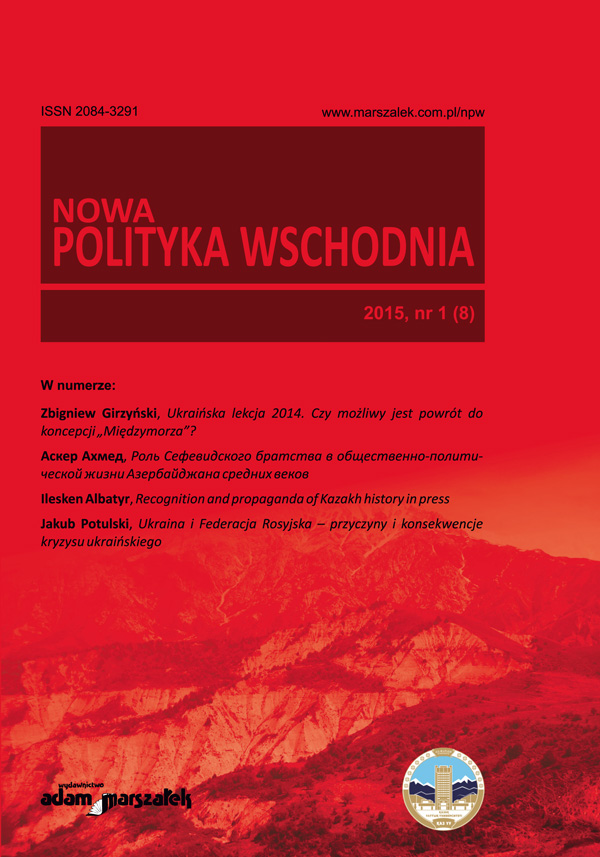Białoruś Zachodnia w interpretacji polskiej: wybrane wątki historyczne i motywy liryczne. Część II: Polska wizja Białorusi w II wojnie światowej: widmo zdrady i obudzenie skruchy
Western Belarus in the Polish interpretation: selected historical topics and lyrical themes. Part II: Polish vision of Belarus in World War II: the specter of betrayal and awakening of betrayal and awakening of remorse
Author(s): Swietlana CzerwonnajaSubject(s): History, Cultural history, Political history, Social history
Published by: Wydawnictwo Adam Marszałek
Keywords: Polish and Belarusian people;World War II;Belarussian minority in Poland;under the communist dictatorship;after 1989;repentance in Polish literature studies
Summary/Abstract: The main theme in the Polish science and fiction literature, which in the post-war era evolved primarily in exile (in the works of Józef Mackiewicz and other authors whose interest was concentrated on Second World War times), are is-sues related to the lack of understanding and reconciliation between the Polish resistance movement, the history of the Home Army and the guerrilla groups of various nationalities (Belarusian, Lithuanian, Ukrainian, Russian) in the Polish Eastern Borderlands occupied by the Nazis and national organizations and liber-ation movements of nations that sought their own solutions to national problems by means of collaboration with the occupants. Misunderstandings, war clash-es among themselves caused fatal misfortune, irreparable damage to the lives of these people and for the common cause against the occupant. At first the Polish literature was dominated by the desire to find the culprits of this situation among neighbours, among others to prove the guilt of the Belarusians in what formed in Polish Eastern Borderland during the war and occupation, then the creation of the communist regime, when, supposedly, Belarusians willingly and on a mass scale served in the Soviet authorities “gosbezopasnosti” and in the ranks of thePolish Department of Security (UB). Such a drive in the works of writers and sci-entific studies of recent decades is changing to a more objective approach and in-depth analysis of the dramatic situation in which were nations of Eastern Europe, deceived by their own leaders, blinded by false illusions, pulled into a fratricidal war. In Polish literature, whose attention is paid to the situation of the Belaru-sian minority in post-war “People’s Poland” – situation in many aspects hard andunlawful – new intonations of repentance and reconciliation can be heard much louder. Evidence of this poetic light Belarus-Dobrorus image can be.
Journal: Nowa Polityka Wschodnia
- Issue Year: 8/2015
- Issue No: 1
- Page Range: 154-176
- Page Count: 23
- Language: Polish

